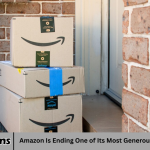A millennial entrepreneur has achieved remarkable success by selling millions of dollars worth of cleaning products. What sets him apart is not just his products, but his unique two-part sales strategy.
- The Millennial Entrepreneur’s Background
- The Two-Part Sales Strategy Explained
- Why Brick-and-Mortar Retail Matters
- Challenges and Opportunities in Retail
- The Role of Online Sales in His Strategy
- Lessons for Other Entrepreneurs
- Future Plans for Growth
- Frequently Asked Questions
- What is the two-part sales strategy used by the entrepreneur?
- Why does he believe in brick-and-mortar retail?
- How does online sales fit into his business?
- What challenges come with brick-and-mortar retail?
- What lessons can other entrepreneurs learn from his approach?
- Does he plan to expand his business further?
- How does he use digital marketing effectively?
He also places a strong bet on brick-and-mortar retail, despite the growing trend of online shopping. This article explores his approach, why he believes in physical stores, and what others can learn from his journey.
The Millennial Entrepreneur’s Background
This millennial started his business with a clear vision. He identified a growing demand for effective and eco-friendly cleaning products. Using his passion and knowledge, he built a brand that resonates with consumers looking for quality and sustainability.
His journey reflects the spirit of modern entrepreneurship, combining traditional values with innovative marketing and sales techniques.
The Two-Part Sales Strategy Explained
The entrepreneur’s success is rooted in a two-part sales strategy that focuses on both online and offline channels.
The first part is strong digital marketing. He uses social media, influencer partnerships, and targeted ads to reach a wide audience. This helps build brand awareness and drives online sales.
The second part involves expanding into brick-and-mortar retail stores. He believes that physical presence allows customers to experience the product firsthand, which builds trust and loyalty.
Why Brick-and-Mortar Retail Matters
In a world dominated by online shopping, this millennial sees great value in brick-and-mortar stores. Physical stores provide customers with a tactile experience they cannot get online.
Customers can see, touch, and smell the products, which can influence their purchasing decisions. The personal interaction with store staff also creates a stronger connection to the brand.
Challenges and Opportunities in Retail
While brick-and-mortar retail offers many benefits, it also comes with challenges. Costs such as rent, staffing, and inventory management can be high.
However, the entrepreneur views these challenges as opportunities to differentiate his brand. By carefully selecting store locations and providing excellent customer service, he aims to create memorable shopping experiences.
The Role of Online Sales in His Strategy
Online sales remain an essential part of his business. The convenience of shopping from home and the ability to reach customers nationwide or even globally make online channels vital.
He integrates his online and offline efforts by using online promotions to drive traffic to stores and vice versa. This creates a seamless customer journey.
Lessons for Other Entrepreneurs
This millennial’s approach offers valuable lessons. Balancing online and offline sales can maximize reach and customer engagement.
Focusing on product quality and customer experience helps build a loyal customer base. Entrepreneurs should also be open to combining new technology with traditional business models.
Future Plans for Growth
Looking ahead, the entrepreneur plans to expand both his online presence and physical store locations. He aims to introduce new products and explore partnerships to grow his brand further.
His belief in brick-and-mortar retail as part of a broader strategy suggests that physical stores will continue to play a role in his success.
Frequently Asked Questions
What is the two-part sales strategy used by the entrepreneur?
He uses a combination of strong digital marketing and expanding into brick-and-mortar retail stores.
Why does he believe in brick-and-mortar retail?
Physical stores allow customers to experience products firsthand and build trust with the brand.
How does online sales fit into his business?
Online sales help reach a wider audience and complement the in-store experience.
What challenges come with brick-and-mortar retail?
Costs like rent and staffing can be high, but they offer opportunities for brand differentiation.
What lessons can other entrepreneurs learn from his approach?
Balancing online and offline channels and focusing on customer experience are key to success.
Does he plan to expand his business further?
Yes, he plans to grow both online and offline, introduce new products, and form partnerships.
How does he use digital marketing effectively?
He leverages social media, influencers, and targeted ads to build brand awareness and drive sales.
Conclusion
The success story of this millennial selling millions in cleaning products highlights the power of a balanced sales strategy. By combining digital marketing with a strong focus on brick-and-mortar retail, he has created a brand that connects with customers in multiple ways.
His journey shows that even in a digital age, physical stores remain important. For entrepreneurs, his approach is a reminder to embrace diverse sales channels and prioritize customer experience.











